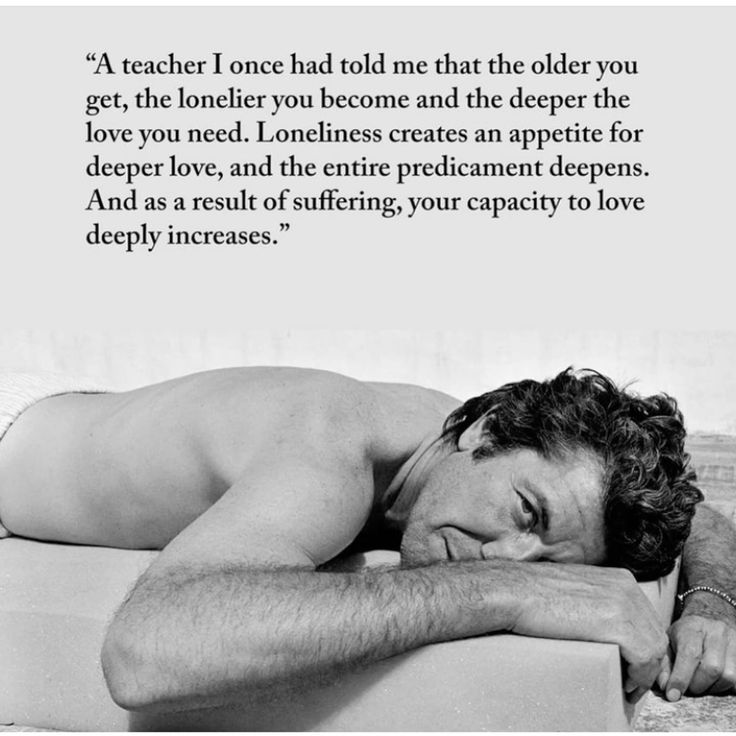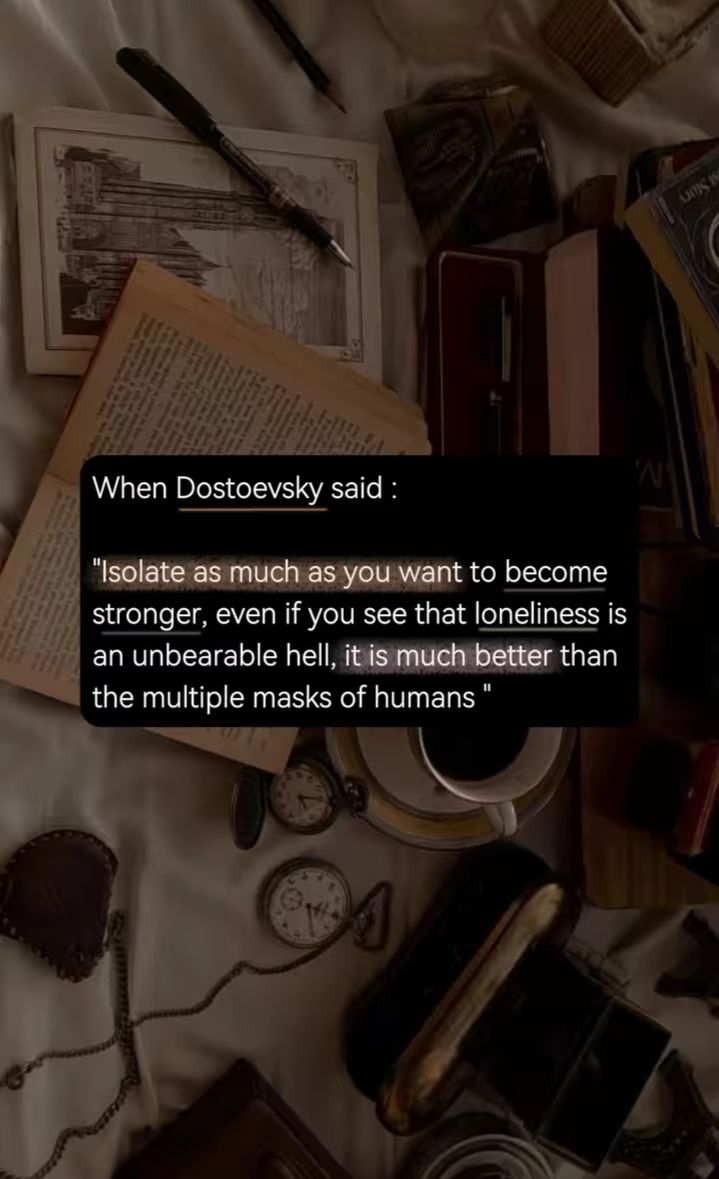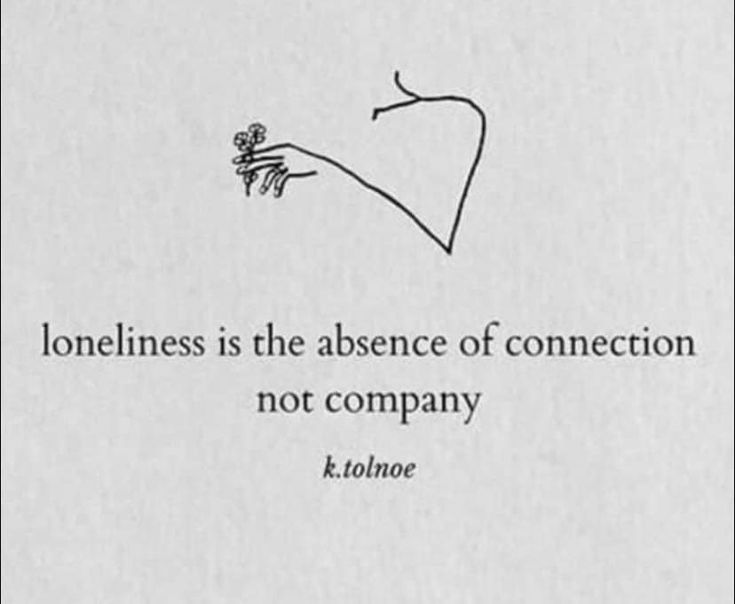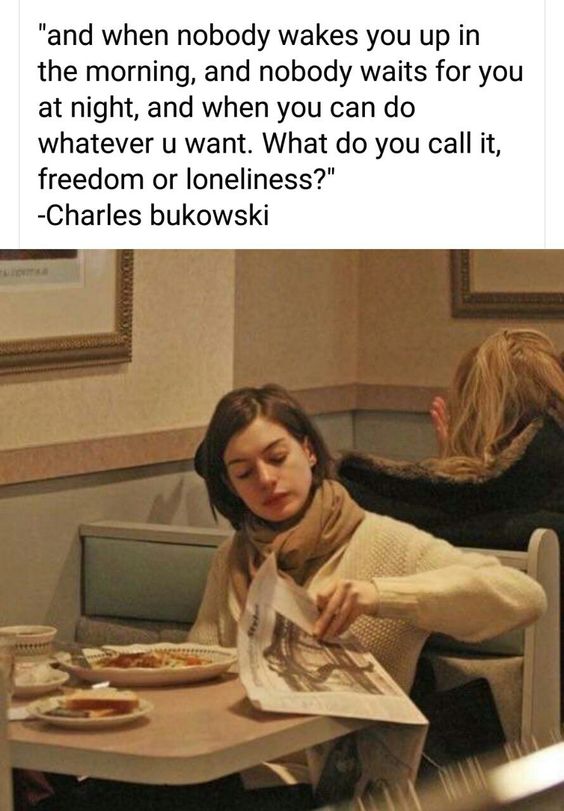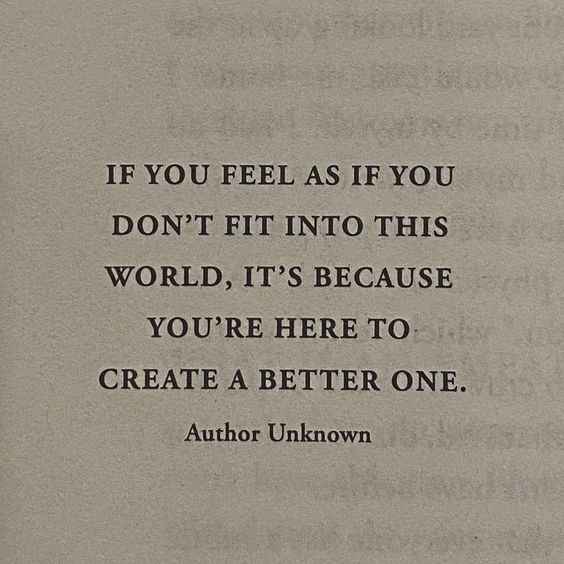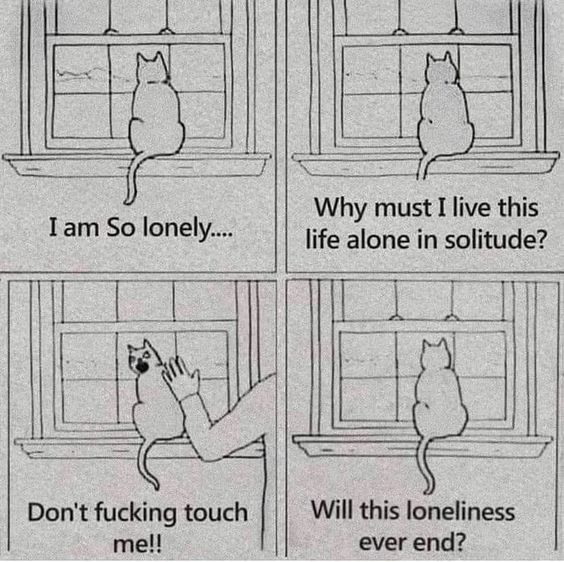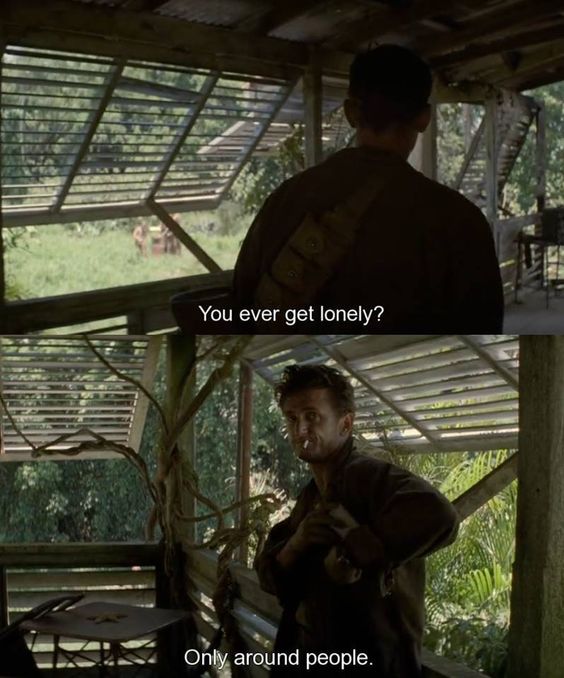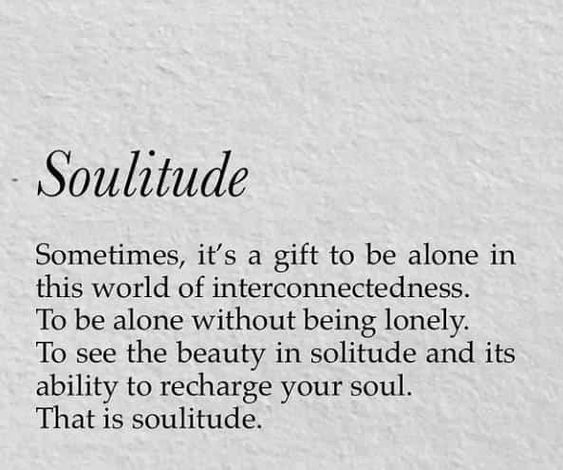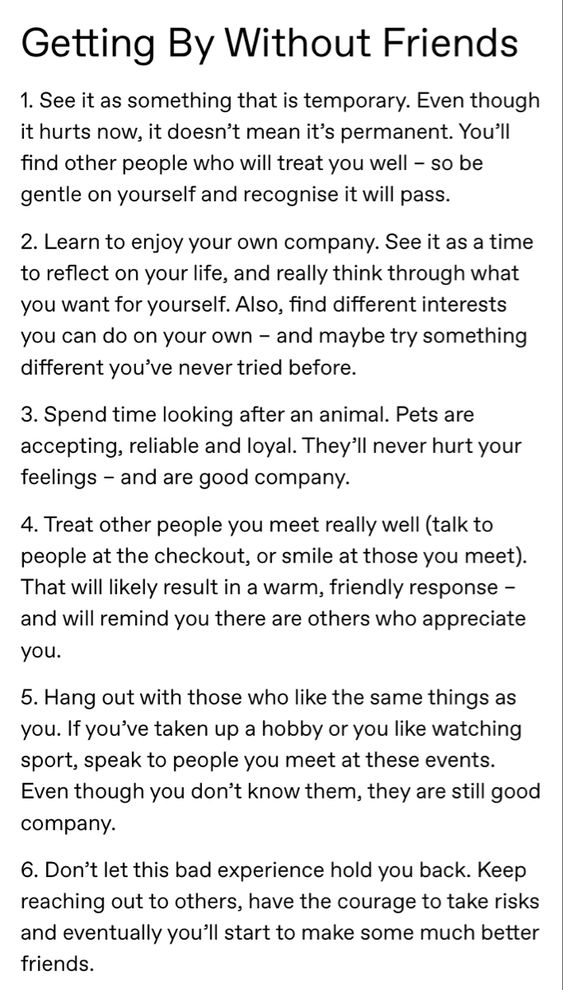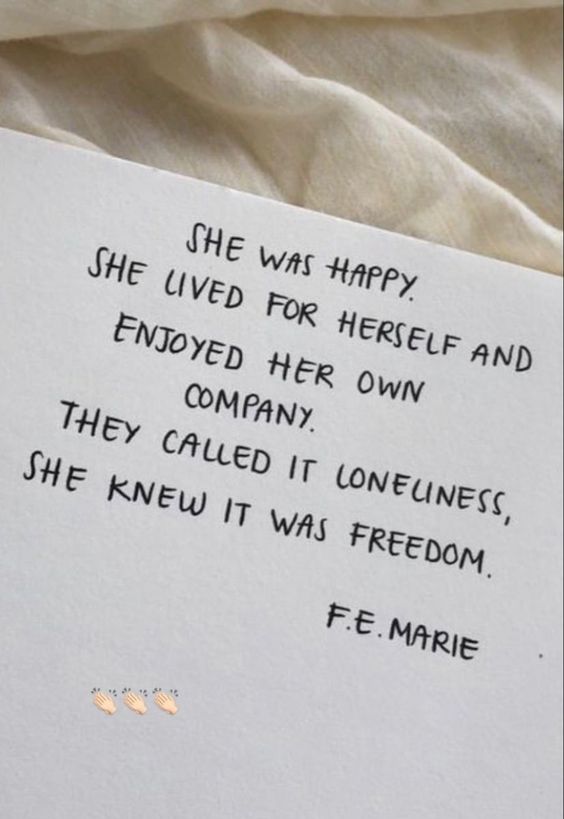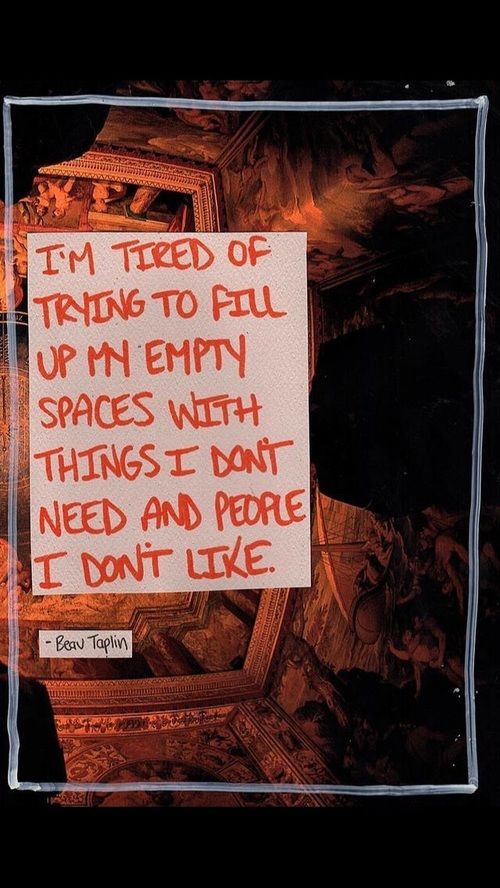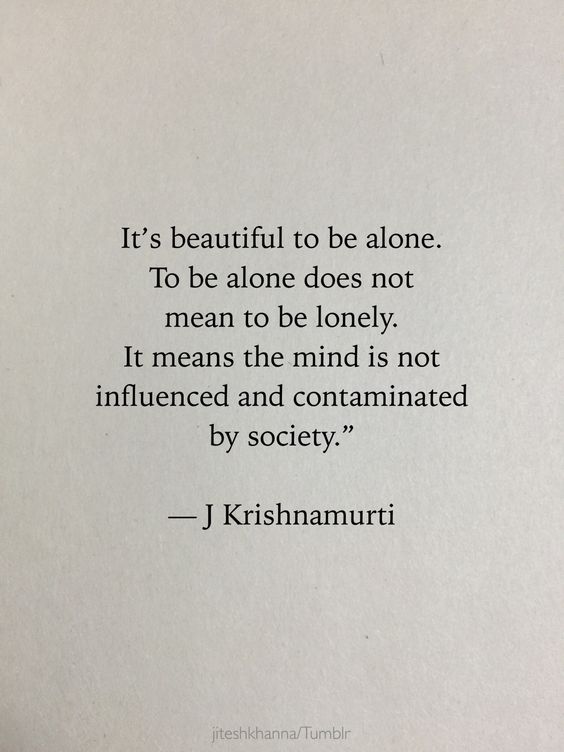“…He believed that the more people were connected on social media, the lonelier society became.”
Matt Haig, The Midnight Library (Page 127)
“She’d been feeling lonely. And though she’d studied enough existential philosophy to believe loneliness was a fundamental part of being a human in an essentially meaningless universe, it was good to see him.”
Matt Haig, The Midnight Library (Page 5)
“It can be very difficult to have one’s own space. But unless you have your own space, you will never become acquainted with your own being. You will never come to know who you are. Always engaged, always occupied in a thousand and one things—in relationships, in worldly affairs, anxieties, plans, future, past—one continuously lives on the surface. If you love yourself deeply and go down into yourself, you will be ready to love others even more deeply, because one who does not know oneself cannot love very deeply.”
Osho, Everyday Osho (Page 153)
“Sometimes, I wonder if we hurt others because we feel lonely in our own pain.”
Cole Schafer (January Black), One Minute, Please? (Page 45)
“Technology has rapidly exacerbated the loneliness problem, with one study cited in the report finding that people who used social media for two hours or more daily were more than twice as likely to report feeling socially isolated than those who were on such apps for less than 30 minutes a day.”
Amanda Seitz
“Your relationships are like handholds to let yourself get pulled back into life. The key of it is you have to take the initiative. If you’re waiting for them to the take the initiative, you don’t understand. You could invite somebody out to lunch that you don’t find interesting, it doesn’t matter, it will affect you anyway, in a positive way. That person represents the whole human race, symbolically.”
Phil Stutz, Stutz
